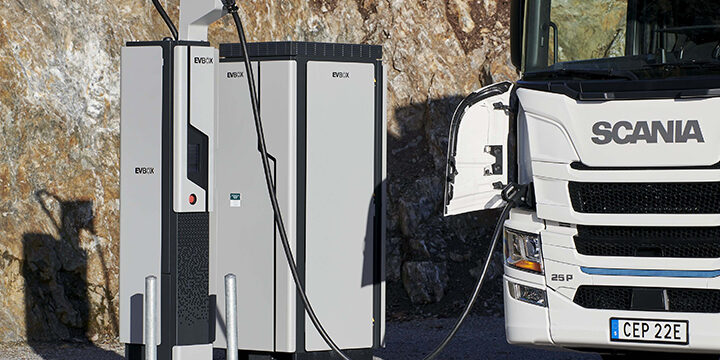
South Africa is gearing up to establish a truck charging network powered entirely by locally generated solar energy, a move aimed at curbing emissions in the transportation sector.
The initiative, spearheaded by Zero Carbon Charge, will introduce off-grid charging stations across the nation, with the first six locations already in the approval process.
Zero Carbon Charge, based in Vredendal, South Africa, conceived the concept for off-grid charging stations as part of its efforts to promote sustainable energy solutions.
Building upon its success in developing high-power charging networks for electric vehicles (EVs), the company established a subsidiary called Zero Carbon Logistics to extend the infrastructure to electric trucks.
The charging stations will feature ultra-fast charging technology and modular battery packs, with a significant portion of each site dedicated to solar panels capable of delivering 35 megawatts peak.
These stations aim to charge trucks within 20 minutes, facilitating the transition to electric models with charging capacities in the megawatt range.
In addition to providing renewable energy, the project emphasizes creating safe and clean rest areas for truck drivers, equipped with facilities such as toilets, shops, fast Wi-Fi, and repair services
. The sites will also be monitored 24/7 using CCTV cameras for enhanced security.
The initiative aligns with the global trend towards electrification in the transportation sector, driven by major truck manufacturers’ commitments to producing electric models.
By replacing petrol-powered trucks with electric ones, the project aims to significantly reduce CO2 emissions, particularly along major transport routes like the N3 between Durban and Johannesburg.
However, the success of the project hinges on securing government permits for site construction, with collaboration from entities such as the Green Energy unit from InvestSA and the KwaZulu Natal Trade and Industry Authority crucial for its implementation.
The initiative reflects South Africa’s commitment to green mobility and its transition towards a net-zero transport industry in alignment with environmental goals outlined in the Green Transport Strategy.





